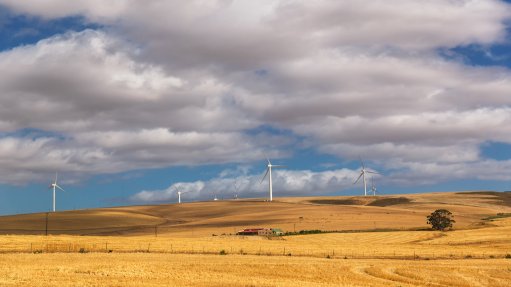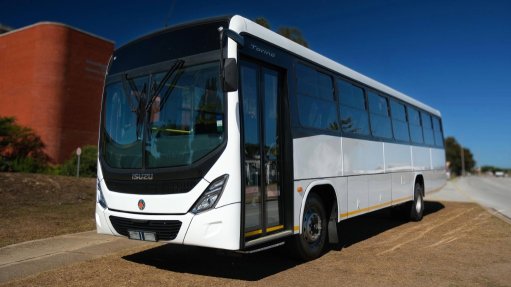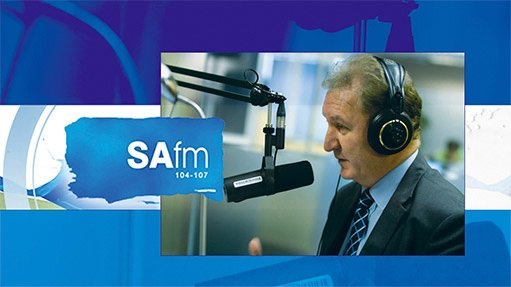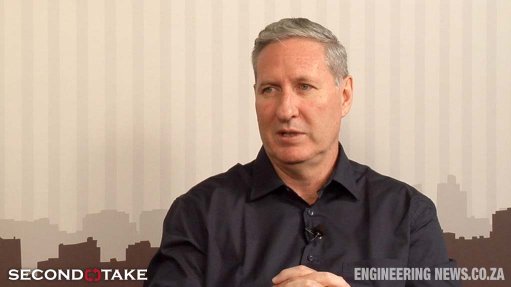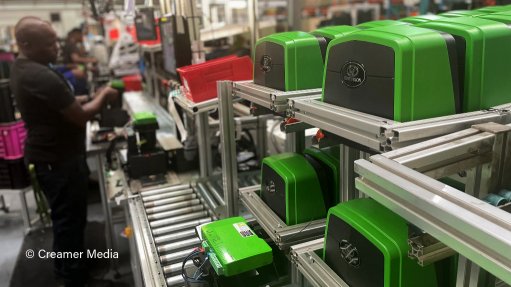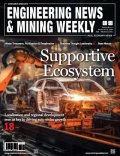Involvement of the engineering fraternity in decision-making bodies, key to infrastructure development and maintenance
I recently read an opinion piece by University of Johannesburg Vice-Chancellor and Principal Professor Tshilidzi Marwala titled “For want of an engineer, the water was lost; for want of the water… a country was lost — all for the want of an engineer”. In the opinion piece, Marwala notes, “If you don’t have an engineer in your leadership cohort, you must expect engineering related issues to remain unsolved”.
This particular statement as well as title of the opinion piece struck a chord with me, not only as a professionally registered engineer myself but more so as the Vice President of the Engineering Council of South Africa (ECSA).
What stood out for me, in addition to the brain drain as a result of engineers leaving South Africa to pursue employment overseas, is how, due to the lack of representation of engineers and particularly professionally registered ones in advisory or decision making roles, the provision of basic services to South Africans is compromised.
Therefore “For want of an engineer, the water was lost; for want of the water… a country was lost — all for the want of an engineer” begs the question: how can the engineering regulator of South Africa meaningfully participate and influence decisions on engineering related matters that affect the provision of these basic services?
The response to this question lies within the fulfilment of ECSA’s core mandate in accordance with the Engineering Professions Act (Act 46
of 2000), which states that ECSA is mandated to accredit engineering programmes, register engineering professionals, regulate the engineering profession in South Africa and ensure that registered professionals adhere to the Code of Conduct.
At the core of this mandate, is the protection of South African citizens in ensuring that infrastructure provided is safe for use and dwelling and that this infrastructure is sufficiently maintained to sustain the provision of basic services to South Africans.
The achievement of this mandate lies not in working in isolation as a regulatory body, but it is centred on key partnerships with what President Cyril Ramaphosa in his 2022 State of the Nation Address termed, “social partners”. These social partners for the regulator include institutions of higher learning, voluntary associations, government departments at various levels, State-owned entities, and other bodies that are decision-makers and vested in the provision of infrastructure and its maintenance.
The active involvement of these partners in decision making bodies such as Infrastructure South Africa (ISA) should be prioritised. This will ensure the expertise, knowledge and skills of professional engineers are used in the best way possible to benefit South Africans.
In addition, only those who are qualified and possess the required competency should be placed at the helm of the conception, implementation and maintenance of these infrastructure projects to ensure that service delivery through the provision of services is achieved.
One key partnership that the regulator has entered into is with development initiative Bosch Ulwazi in the establishment of ECSÀ’s first Certified Engineering Training Academy. This Academy is directly addresses the gap in the engineering skills pipeline by introducing a structured and systematic training intervention for candidate technicians, technologists and engineers to fast track the throughput of professional registration within a minimum period of three to four years.
The Academies Programme further seeks to ensure that candidates are afforded real on-the-job structured, quality training to acquire the necessary experience in engineering projects.
The second initiative is the Identification of Engineering Work (IDoEW) which has been gazetted by ECSA. It entails the engineering activities performed by persons registered in the ECSA categories of registration, and demarcates the type of work to be performed from one category of registration from another. Consultations with voluntary associations, institutions of higher learning, commitment and undertaking organisations have been conducted and three more consultations, namely with government departments, state-owned entities and municipalities, will be conducted in the new financial year.
This type of work prescribed in the EPA, will enable ECSA to protect the public, the profession and any registered persons.
Are these partnerships sufficient to ensure that South Africans are provided with basic services? No, but the pursuant relationship building between these social partners and finding infrastructure structures in which to meaningfully participate by providing advice and decision making might change the narrative to “for the involvement of an engineer, the water was provided…. for the provision of water…. A country was saved – all for the involvement of an engineer”.
Article Enquiry
Email Article
Save Article
Feedback
To advertise email advertising@creamermedia.co.za or click here
Comments
Press Office
Announcements
What's On
Subscribe to improve your user experience...
Option 1 (equivalent of R125 a month):
Receive a weekly copy of Creamer Media's Engineering News & Mining Weekly magazine
(print copy for those in South Africa and e-magazine for those outside of South Africa)
Receive daily email newsletters
Access to full search results
Access archive of magazine back copies
Access to Projects in Progress
Access to ONE Research Report of your choice in PDF format
Option 2 (equivalent of R375 a month):
All benefits from Option 1
PLUS
Access to Creamer Media's Research Channel Africa for ALL Research Reports, in PDF format, on various industrial and mining sectors
including Electricity; Water; Energy Transition; Hydrogen; Roads, Rail and Ports; Coal; Gold; Platinum; Battery Metals; etc.
Already a subscriber?
Forgotten your password?
Receive weekly copy of Creamer Media's Engineering News & Mining Weekly magazine (print copy for those in South Africa and e-magazine for those outside of South Africa)
➕
Recieve daily email newsletters
➕
Access to full search results
➕
Access archive of magazine back copies
➕
Access to Projects in Progress
➕
Access to ONE Research Report of your choice in PDF format
RESEARCH CHANNEL AFRICA
R4500 (equivalent of R375 a month)
SUBSCRIBEAll benefits from Option 1
➕
Access to Creamer Media's Research Channel Africa for ALL Research Reports on various industrial and mining sectors, in PDF format, including on:
Electricity
➕
Water
➕
Energy Transition
➕
Hydrogen
➕
Roads, Rail and Ports
➕
Coal
➕
Gold
➕
Platinum
➕
Battery Metals
➕
etc.
Receive all benefits from Option 1 or Option 2 delivered to numerous people at your company
➕
Multiple User names and Passwords for simultaneous log-ins
➕
Intranet integration access to all in your organisation









